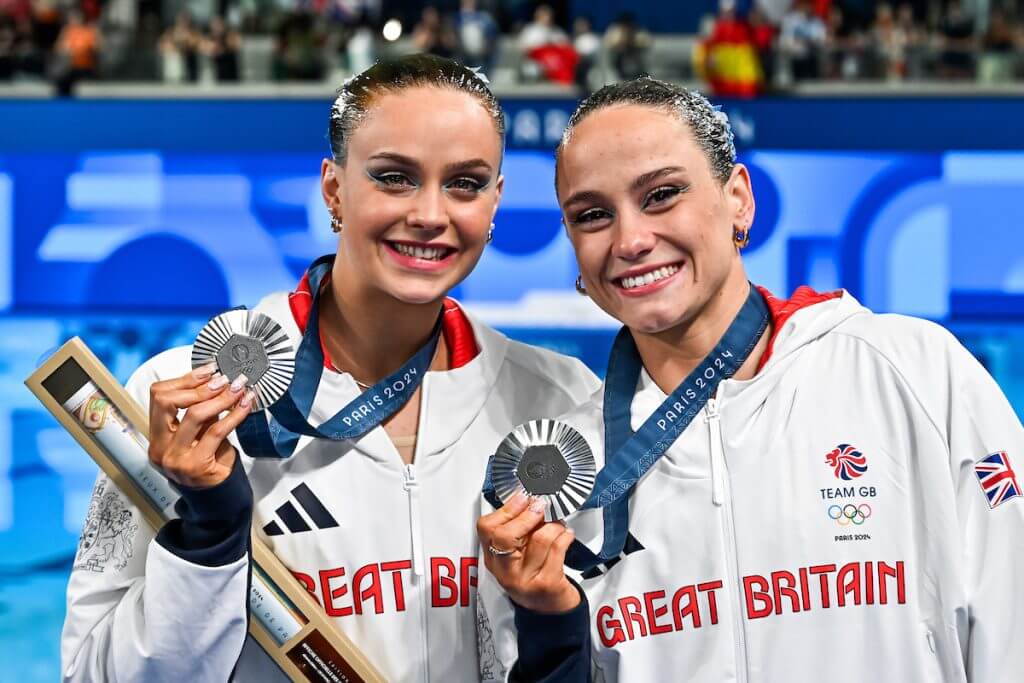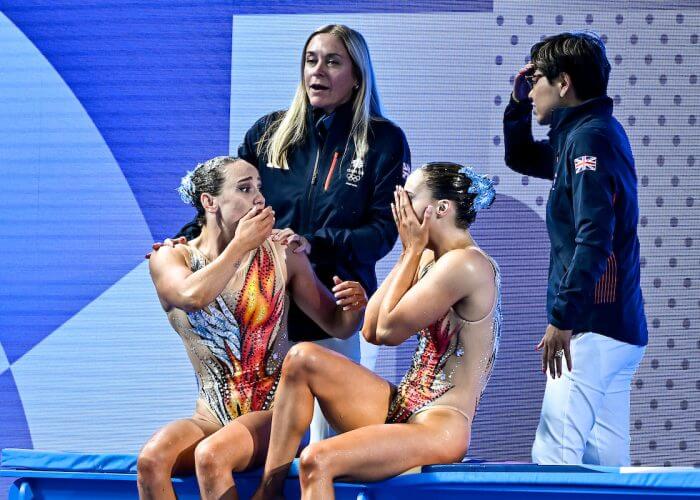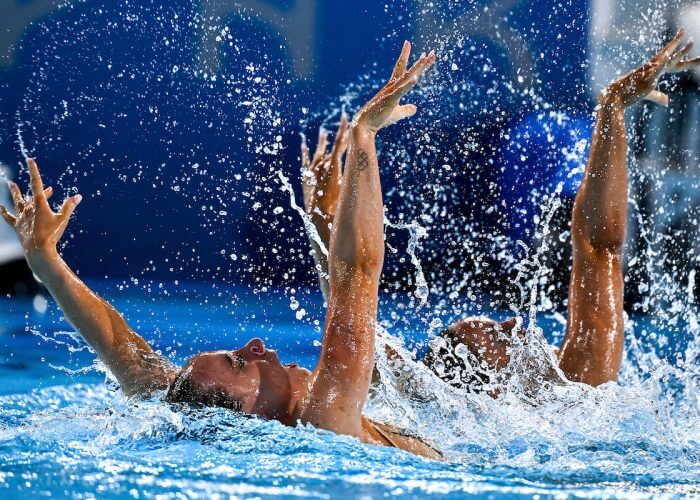Izzy Thorpe Adjusting To Life After Landmark Silver In Artistic Swimming

Izzy Thorpe Adjusting To Life After Landmark Silver In Artistic Swimming
When an athlete stands on the Olympic podium with a medal around their neck, it’s a brief moment that follows years of dedication, intensity, commitment and planning.
Athletes go all in in every area of their lives as they push themselves to their physical and mental limits.
And after the Games are over, what then?
Izzy Thorpe and Kate Shortman made history in Paris as they claimed Great Britain’s first Olympic medal in artistic swimming with Duet silver.
Great Britain’s previous best finish the sport was the fourth place achieved by Caroline Holmyard and Carolyn Wilson in Los Angeles in 1984.

Kate Shortman and Isabelle Thorpe of Great Britain: Photo Courtesy: Giorgio Scala / Deepbluemedia
A little under a fortnight after returning from Paris, Thorpe told Swimming World: “It’s definitely strange going from training so intensely with just the same people every day – it was just me, Kate and our coach at our training centre.
“We’d kind of train 8am to 7pm some days, Monday to Saturday and that was like super-intense. Now I’ve got all this time, I don’t really know what to do with it. These last two weeks have been filled up with lots of media and stuff but I’m going to have a think of what’s next – and probably just get back into the pool and create a bit more of a structure day to day – otherwise I can definitely seeing me go a little bit crazy if I don’t have that structure in place.”
Thorpe was speaking at the launch of Swim England’s #LoveSwimming campaign which is highlighting the wider benefits of swimming lessons for children in terms of happiness, confidence and social skills.
Swim England’s research has shown that over two thirds of parents (68%) agree that swimming lessons have helped their child to make new friends.
- Nearly 7 in 10 parents whose children are currently having lessons agree that their child’s concentration levels improve after swimming lessons.
- Alongside the wider developmental benefits, swimming lessons make children happy – 91% of parents agree that their child enjoys their swimming lessons.
The 23-year-old first started swimming with Shortman at around seven years old and the pair won their first duet aged 10.
Thorpe’s mum Karen competed alongside Shortman’s mother Maria in the 1980s and narrowly missed out on qualifying for the 1996 Olympics in Atlanta.
Despite this, Thorpe feels there weren’t great pathways into artistic swimming when she was younger although that has changed a lot now.
“At the end of swimming lessons you kind of learn a lot of skills – the basic skills like the sculling, eggbeater stuff like that,” she said.
“Which I think are important for everyone really to be able to tread water, stay afloat and it can save lives so it’s really important to have. But that also opens up that opportunity to go into artistic swimming as well or even water polo – other sports. For me I was super lucky to have a lot of the girls training for London 2012, training at my local pool in Bristol.
“So, I looked up to a lot of those girls and my mum was coaching them at the time. Also, my mum was a massive role model for me because she used to swim and she just missed out on qualification for Atlanta Olympics so I think I was always kind of chasing that dream for her as well.”
Momentum Leads To Paris Podium
Their trip to the Paris podium followed silvers at the Doha worlds and European Aquatics Championships in Belgrade, weeks before the Games in the French capital. Shortman also won solo free bronze at the 2023 worlds in Fukuoka.
“There was massive momentum going into the Games,” said Thorpe. “We went in ranked second so there was a little bit of pressure there. I think it was good for us: we dealt with it really well and it’s taught us how to deal with that sort of pressure.

Kate Shortman and Isabelle Thorpe of Great Britain: Photo Courtesy: Giorgio Scala / Deepbluemedia
“Since the rule change it has been great for us and for a lot of other nations to just kind of really see different results and see I guess more objective results. You can declare your own difficulty of your routine instead of having a judge tell you how hard they think your routine is. It does take out that subjectivity.”
As Olympic and world medallists, it would be thought that artistic swimming’s profile would rise in Great Britain which tends to be dominated by football.
Medal-winners and instantly recognisable athletes also allows for promoting awareness.
“It is a shame that I feel like every four years at the Olympics is when everyone tunes in and watches artistic swimming,” said Thorpe.
“But I think it’s the same for a lot of sports and it’s great to have more coverage for all sports and yeah, of course from artistic swimming I’m biased, I’d love there to be more coverage on that. To get more people tuning in.
“We were lucky enough to have our swim shown on the BBC for our free duet but unfortunately tech duet wasn’t actually shown. Just to get more people behind and kind of opening the general public’s eyes to artistic swimming because I don’t think a lot of people even know what our sport is and how hard it is.
“I’ve had so many people say ‘oh I didn’t realise you didn’t push off the floor, I didn’t realise how long you had to hold your breath for, how hard it is’. I would love for more people to get behind it I guess.”
- To learn to swim, find local lessons here: http://swimming.org/poolfinder



